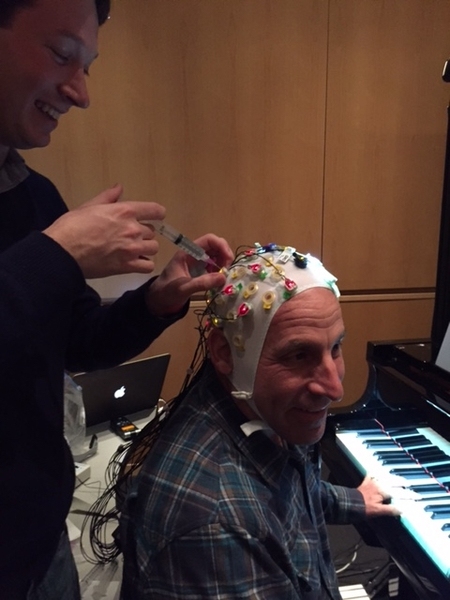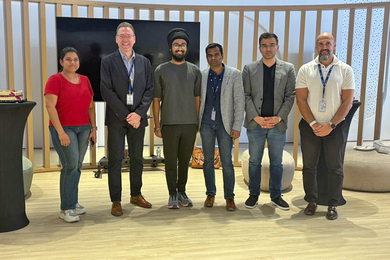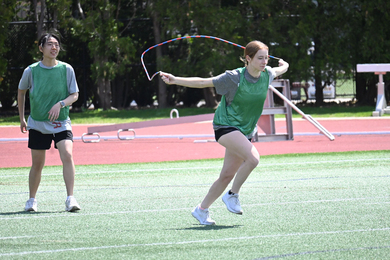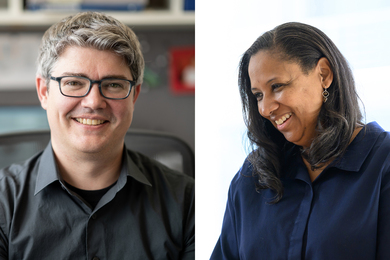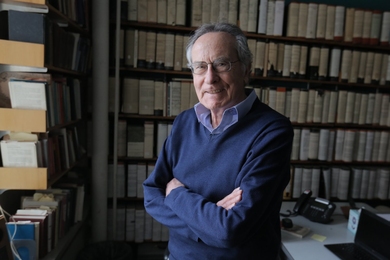"Neither a lofty degree of intelligence nor imagination nor both together go to the making of genius. Love, love, love, that is the soul of genius."
Wolfgang Amadeus Mozart may have been espousing his philosophy for composing symphonies and concertos, but his thinking also applies to young entrepreneurs on a quest for their own stroke of genius.
Case in point, two new courses jointly offered by MIT and Berklee College of Music: Developing Technologies for Music and Health and Music and Learning Devices. Sure, students bring plenty of intelligence and imagination to the classes, but most of all they bring a passion for innovation and a love of entrepreneurship.
Merging music and health
In Developing Technologies for Music and Health, students design and prototype devices that explore music’s impact on health and brain functions, such as sleep, anxiety, athletic performance, pain, and even dementia. Music therapy is a well-established field, but the idea of integrating technology and data analysis into music therapy to improve a person’s well-being is where the future lies. The therapeutic, clinical, and technical applications of music in health are far-reaching, and our ever-connected world presents an exciting opportunity for the young entrepreneur.
For example, now that researchers can track and quantify the physical effects of music with biometric sensors, is there a way to customize an athlete’s playlist to increase heart rate and maximize a workout? This was a focus area of last fall’s course, run in collaboration with The Sync Project, a for-profit startup that aims to harness the power of music for health. Students were equipped with the latest research and asked to leverage their learnings to develop a product for athletes. The current semester features a flexible curriculum so students can pursue their own ideas to merge music, technology, and health.
"This class discusses the topics of music and health technology simultaneously at such a high level,” says Sakura Tsuruta, an electronic production and design major at Berklee who also holds a degree in music therapy. “It is very difficult to be completely original, and sometimes school teaches us to be textbook-perfect in this not-so-perfect world. But in this class environment, we can discuss new ideas openly, let creativity and imagination take the lead, think outside the box, and take action."
Learning how we learn
Offered in the spring of 2015, Music and Learning Devices explored the landscape of learning science and music education. Students designed and prototyped new devices, apps, and other digital tools to help people make music more easily, such as virtual reality piano lessons and digital wristbands that sense movements while playing guitar and then use artificial intelligence to improve technique.
The course also examined whether an individual’s music learning style is indicative of how he or she learns non-musical subjects. Students seek to understand how music affects learning and studying, which may provide insight into how the brain works and help educators better tailor coursework. The Spring 2017 seminar will be a musical instrument design workshop.
The Founder’s Journey
These new courses are part of The Founder’s Journey, a seminar series developed by Ken Zolot, senior lecturer in MIT’s Office of Digital Learning and professor of creative entrepreneurship at Berklee. The Founder’s Journey is open to all undergraduates, and it serves as a sort of clubhouse for engineers seeking to explore the life path of a startup founder. While MIT’s Sloan School of Management also offers entrepreneurship courses, Zolot tunes his classes to the unique spirit of engineering students, and now musicians.
“A lot of freshmen wonder whether they’re the next Elon Musk,” he says. “We want to embrace that, connect with these students early, and try to demystify the entrepreneurship process. Founding a startup really is a personal odyssey. You can’t read about it. You have to get in there and build up the muscles.”
Students get to build their entrepreneurial muscles by essentially co-creating the curriculum. There is no textbook. Instead, Zolot asks students to take an action-oriented, hands-on approach to the work — and presents an opportunity to turn concepts into real companies.
A collaboration in inspiration
The music and technology courses reflect a loose collaboration between MIT and Berklee, a relationship Zolot hopes to formalize moving forward. In many ways, the biggest lesson learned by the students from opposite sides of the Charles River is how to engage with people outside your comfort zone. Most students find the experience enlightening — and inspiring.
“The Music and Learning course opened my mind to how technology can influence and transform creative industries such as music and education,” says MIT sophomore Max Allen, a computer science and electrical engineering major whose team developed a concept to help musicians from underprivileged backgrounds break into the music world. “It also gave me the opportunity to collaborate with students from Berklee as well as MIT Sloan, Media Lab, and Harvard graduate students auditing the class — which helped me think critically about how technology can disrupt these industries through entrepreneurship.”
Zolot is most impressed by the mutual admiration students have for one another and their openness to discovering complimentary skill sets. “Some of the Berklee students are really technically inclined and many MIT students are also really musical,” he says. “They’re able to connect with a side of their brain or soul that is very important to how they solve problems and think about the world. These classes give them license to explore that and meet people who inspire them.”
